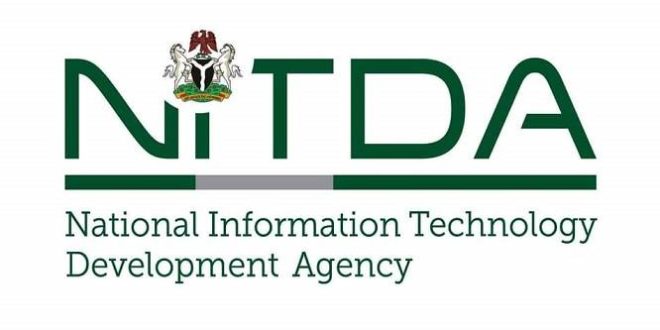The Director General of the National Information Technology Development Agency, NITDA, Mallam Inuwa Kashif says putting women in parity with their male counterparts can add $299 billion to Nigeria’s GDP by 2025.
Abdullahi, stated this on Friday at the graduation of 200 women at Civil Service Training Centre, Kubwa, FCT, under the GMGA program.
The program is a pilot scheme driven by NITDA and World Bank to integrate women into the Digital Ecosystem and provide an exemplar for driving scale and digital inclusion.
The programme which aims at “Building Women and Empowering Communities”, is a digital skills development program designed to identify, prepare, and connect disadvantaged girls and young women with emerging skills in the knowledge economy geared towards integrating gender intentional learning outcomes focused on technical training, soft skills, introduction to the gig economy and right based learnings for our young women interested in the tech ecosystem.
It is implemented by Natview Technology as part of its contribution to driving digital literacy and skills across Nigeria.
It partnered with World Bank to deliver digital competency across Africa and is aiming at deepening the partnership with WBG and NITDA.
The NITDA DG while quoting a research findings by McKensy Global Institute said, ‘‘if women are put in parity with their male counterparts by 2025, it will add to the global GDP about $18 trillion, and on countries specific, he quoted the report as saying that Nigeria is one of the countries which is said can add $299 billion to its GDP by 2025 if they can achieve the gender equality and parity.
On NITDA’s mandate, which is focused on implementation of the national digital economy policy and strategy, Inuwa said the agency is working on so many initiatives, one of which is the National Digital skills Strategy which World Bank has keyed in as one of the implementation partners, the GIG programme.
‘‘Under that strategy, we want to achieve 95 per cent digital literacy, we want to position Nigeria to become global talent factory because looking at the talent globally according to Confery research that by 2030, there will be 85 million talent deficit globally which will result to 8.5 trillion USD unrealised annual revenue.
‘‘If Nigeria can position itself, we can be part of this, we can have Nigeria be part of the GIG economy working remotely, part of the global value chain working remotely from Nigeria for European countries, the US companies, Asian companies and this will help us achieve that.
‘‘In addition to that, at NITDA we are working on Gender Digital Literacy Inclusion because we do a lot in terms of training.
From November last year to date just 28 per cent of that, about only 64,000 are women.
‘‘We also have other initiatives open to all Nigerians, especially the young people but you will see the participation of women is less mostly less than 30 per cent, that is why we are coming up with initiatives that are women focused to help us achieve gender equality, parity as well.’’
Speaking further, the NITDA boss urged Nigerian, particularly women to use digital platforms to promote their businesses, saying that they can use whatsapp, facebook, Instagram to promote their business and be part of the GIG economy.
The DG, who described GIG economy as leveraging the power of Information technology to work remotely and do a freelance work, said, ‘‘if you have skills like content creation and digital marketing, you can use digital platforms to promote your business. You can use what’sapp, facebook, Instagram to promote your business and be part of the Gig economy. You can work somewhere and use these platforms to do other things.’’
Earlier in his remarks, the CEO of Natview Technology, Mr. Nurudeen Maidoki said, ‘‘our target is to achieve 95 per cent digital literacy by 2030 but under this partnership with World bank, the target is 800, so we started with this 200 and we will continue and this is a pilot.
‘‘This program is critical, especially as it relates to the goal of integrating women into the Digital Ecosystem. NITDA is providing an exemplar for driving scale and digital inclusion.
‘‘The program is implemented by Natview Technology as part of our contributing to driving digital literacy and skills across Nigeria. We have partnered with World Bank to deliver digital competency across Africa and we look forward to deepening this partnership with WBG and NITDA.’’
During the 4-day launch, 200 young women were selected to participate in a digital content creation training. Beyond the digital content creation training, the participants also received skills training that will enable them to participate in the Gig economy, which creates a platform for them to earn income from home.
‘‘Through this initiative, we hope to create a pipeline of highly skilled female technologists who can contribute to innovation and growth in Nigeria’s technology industry. We believe that by empowering young women with digital skills, we can create a more inclusive and diverse technology industry that reflects the richness and diversity of our society.
‘‘The goal of the program is to train and equip at least 800 girls and young women with digital skills and competencies to be globally competitive in the remote workplace.
The pilot launch focuses on training 200 women around digital content creation and marketing while in the future, an additional 600 young women will be integrated from 4 northern Nigeria states (Borno, Gombe, Kano, Zamfara) with high FCV cases.
At the end of the training, SheCluded, a Digital Financial Company for women, offered all the participants access to the SheCluded for business mentorship, training and access to loans and grants.
The gesture is expected to be a stepping stone for beneficiaries to achieving self- sufficiency around the use of technology to drive scale.
(Vanguard)
 National Telescope national telescope newspaper
National Telescope national telescope newspaper



